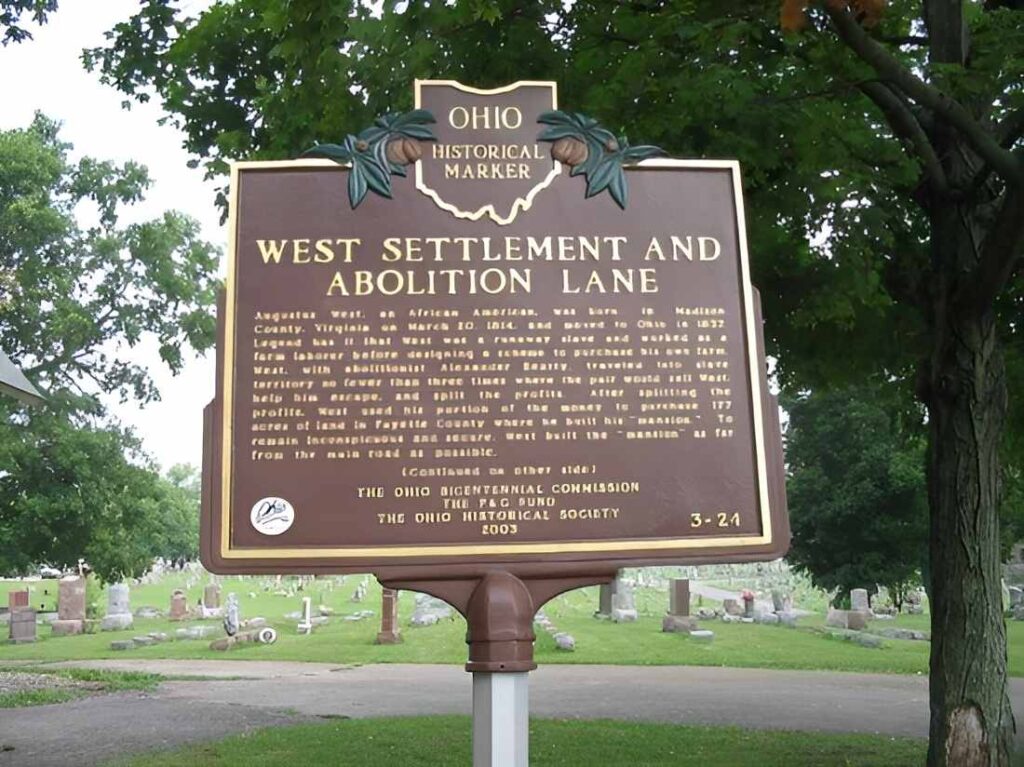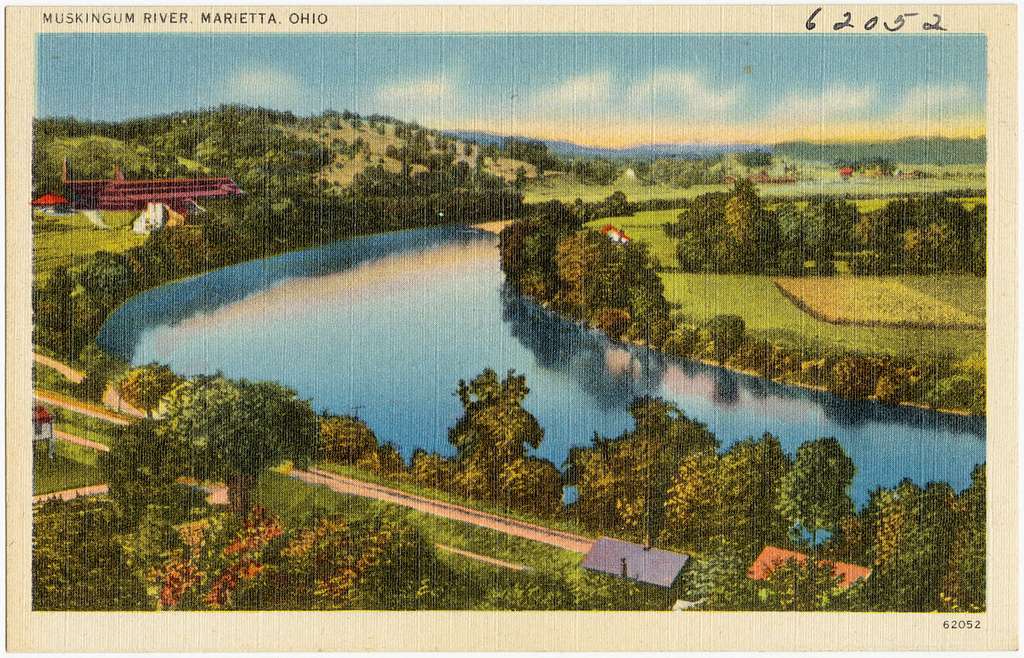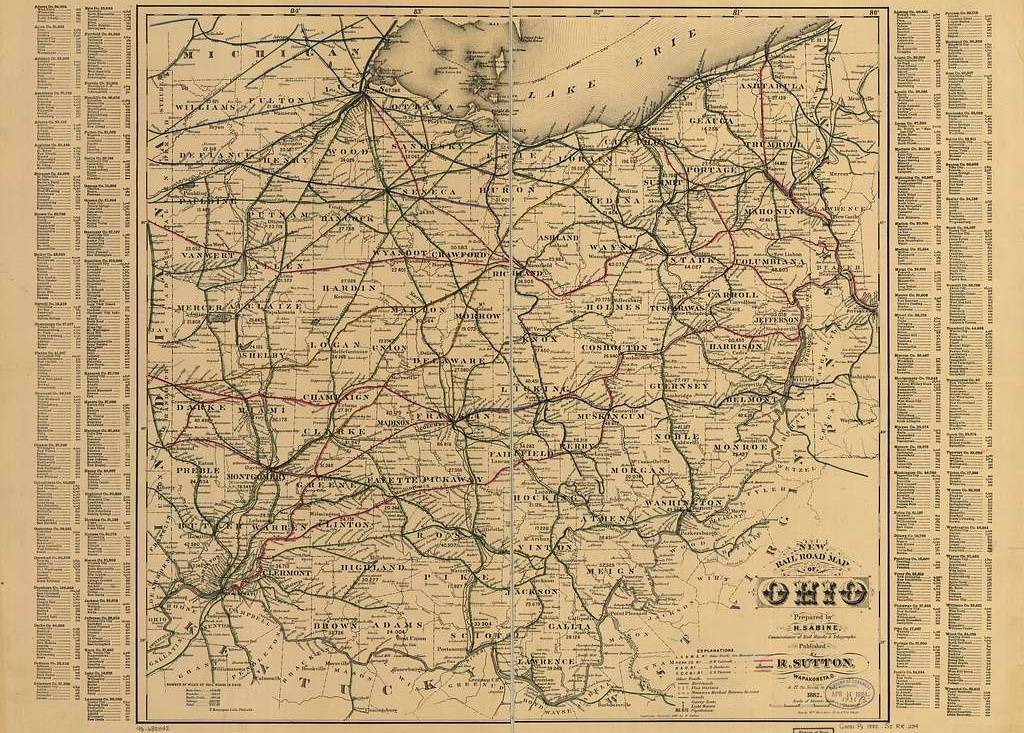Augustus West was born into slavery in Madison County, Virginia on March 20, 1814, but moved as either an escaped or freed slave (history isn’t entirely certain to which one it is) to Ohio in 1837. Before long, he built himself a mansion and began to create a settlement for people like himself, which prospered quite nicely for a short time.
Now, if you’re thinking that there is something missing between a runaway or freed slave crossing into Ohio, and the guy building a mansion, you would be right. And, if the legends about the guy are true – it’s a very wild story.
Augustus West On the Historical Record
In A History of Fayette County, R.S. Dills says that “His father was a slave. His mother was a free colored woman, Dilcie West, who supported her family by selling cakes and other pastry.” Because his father was a slave, Augustus took on his mother’s last name, making his father’s lineage a bit difficult to track down. Young Augustus was also one of sixteen children Dilcie West bore.
Shortly before moving to Ohio, West married Harriet Payton, who bore him eleven children before she died in 1873. Four years after that, he married Mary Ootes. Of those eleven children, we know little. One son, Andrew, fought with the 27th Michigan Infantry and was killed in Honey Hill, North Carolina in 1863. Another son, William, also joined the army but was killed at The Battle of the Wilderness.
After arriving in Ohio, we know that West settled for a short time near Hillsboro where he bought a small farm. A few years later, he sold his land for $700, which he used to buy a slightly larger farm near Fall’s Creek. A few years later he would sell this land for $1600 before buying one hundred and seventy-seven acres a mile or so north of Greenfield.
Today, with “Property Flipping” shows on way too many cable TV channels, it might be easy for someone think this is what Augustus was doing, but that couldn’t be farther from the truth. However, before we get there, we need to take a quick break and look at someone else: Alexander Beaty.
Alexander Beaty
Alexander Beatty, his wife Margaret, and their ten children lived in the northeast corner of Fayette County where they owned a fair amount of land. The guys worked on the farm land, the ladies “kept house”. They all attended the local Presbyterian church and for the most part they seemed like the typical family at the time, perhaps on the upper side of society on account of all the land they owned…
Except for one small fact – Alexander was big-time abolitionist. And he had the power and the desire to do something about it.
It is unclear when Alex Beatty first met Augustus West. Some say it was when Augustus bought that one hundred and seventy-seven acres right next to the Beatty property (in other words, when they became neighbors of a sort) although it is entirely possible (and perhaps likely even) that the two had met before, considering they were both active in the abolitionist movement and West choose to move next to Beatty by design.
It’s not hard to see how the two became friends. Both men dreamed of owning farmland and raising a family, and both dreamed of a world without slavery.
Augustus West’s Financial Trail
So, how exactly does a man go from either being an escaped or runaway slave to the owner of one hundred and seventy-seven acres of land, upon which he can afford to build a mansion in less than a decade?
I suppose it is possible that Augustus worked hard on his land, and his efforts there did likely earn him some cash, and even with a wife and a bunch of kids, in time he could have possibly saved up enough to afford more and more land, but based on what we know from the time, that’s one massive long shot. There was no possible way that he could have earned enough farming fifty acres over a few years to be able to afford one hundred and seventy-seven acres, let alone have enough left over to build a mansion.
So, where did the money come from?
Seems Augustus got a little help from his friend Alexander, although maybe not in the way you’re thinking.
Slavery was a thing in states like Kentucky and Virginia along Ohio’s southern border, as well as nearby states like Tennessee, Maryland, among others. And many of the slaves that were in those states, wanted to get to Ohio, where they would be considered at least somewhat free, although many used states like Ohio and Pennsylvania as temporary destinations on their way to somewhere else.
However, just because a slave crossed the border into a state like Ohio, that didn’t mean they were completely and totally free, or totally safe. Slaveowners would often hire what were essentially private bounty hunters who could (and would) cross the state line and try to return the slaves to whomever had owned them.
Considering also that slavery was a major political issue as this nation was forming, many slave (bounty) hunters believed it was their civic duty, if not their sovereign right, to do this.
And there was a lot of money that could be made by these bounty hunters … and a lot of states also set up various “rewards” for anyone who “returned” a runaway slave to the “proper” authorities.
And that’s how Augustus and Alexander got a wild and crazy idea.
The Plot
Let’s say that you’re Augustus or Alexander or one of their friends and you hear that a town in Central Kentucky has just raised their bounty on returned slaves to some obscene amount because it’s the civil war and political pride or whatever. Now, Augustus, he’s a big strong guy, exactly the kind of colored guy slave owners drool over so you know he’s going to get top dollar from any bounty hunter who turns him in. So, if you want to make a ton of money, all you had to do was turn in a guy like Augustus and the money is yours.
But you’re an abolitionist who is against slavery … and you’re actually friends with Augustus, and you know that sending your friend back to slavery is going to hurt (especially for Augustus) … unless there was a way … to turn him in and collect the “reward” money in the afternoon, then that in the middle of the night when nobody could see you, break him out of wherever they were holding him (which was usually a fairly visible place considering they wanted to show off all the returned slaves for clout) and then try to make it back to the Ohio border before anyone knows your gone.
You’ve thinking you just stuck it to The South, just like The South was trying to stick it to The North, plus you got a bunch of their money in your pocket, which is like a double whammy.
You do this successfully once or twice, and you start to realize there’s a long-term flaw to this plot. Eventually, someone may catch on. You’re being careful, not going to the same place twice just in case someone remembers you, or you know that people talk to their neighbors so maybe someone in the next town over might do something to prevent your plot from working …
Then you try a slight variation. Rather than Augustus posing as a runaway slave, this time Alexander is going to claim that Augustus is his slave, he’s taken somewhere and sold (for top dollar since he’s the kind of colored guy slave owners really really really want to buy). You’ll, of course, have a plan to take Augustus back once all that cash is in your hands, which is when you try to make it back home as quickly as you can, trying as you will to make sure nobody is following you.
Two Sides of The Historical Coin
While I was researching this post, it quickly became clear that the way Augustus West and the way that Alexander Beaty were recorded in history were not the same.
With his one hundred and seventy-seven acres of land north of Greenfield, Augustus West did build himself a mansion, and he is at least partly responsible for building many other houses where he hoped that he could create a community for free colored folk, just like himself. In many ways, he was the poster child for this community, and it served him and the community very well.
However, none of this could have been done without Alexander Beatty’s direct influence and help.
When I read an academic paper that called West (and not Beatty) a “Traitor” because of their little scheme that suggested that Beatty was little more than an “insignificant sidekick” I was saddened by the blatant racism and was ready to dismiss the entire paper, until I found more examples. In 2002, the New York Times published an article calling West a “con man” while trying to discredit this entire story. He, too, called Beatty “merely a sidekick”.
We do know that the land used along “Abolition Lane” (as it was then called) was owed by West, but does that necessarily mean that he is to be given all the credit? Much of the hard work and a large plot of the plot was performed by Beatty, without whom none of this would have been possible.
That is, i suppose, the way it is. To some, Augustus West is a bit of a hero. To others, a con artist and traitor. Kinda sad, isn’t it.




Thank you for writing this! Augustus West really does deserve all the recognition he gets because he would have likely been punished to a greater degree than Alexander Beatty. I’m the great-great-great granddaughter of Alexander and am so proud to be a descendant of a Station Agent on the Underground Railroad, but I believe there are enough historical markers and Wikipedia pages for white men. It’s an honor to have Alexander mentioned alongside Augustus in any capacity.
I love history and this was very interesting, I too have cousin that in the cannon family, and learn a lot history